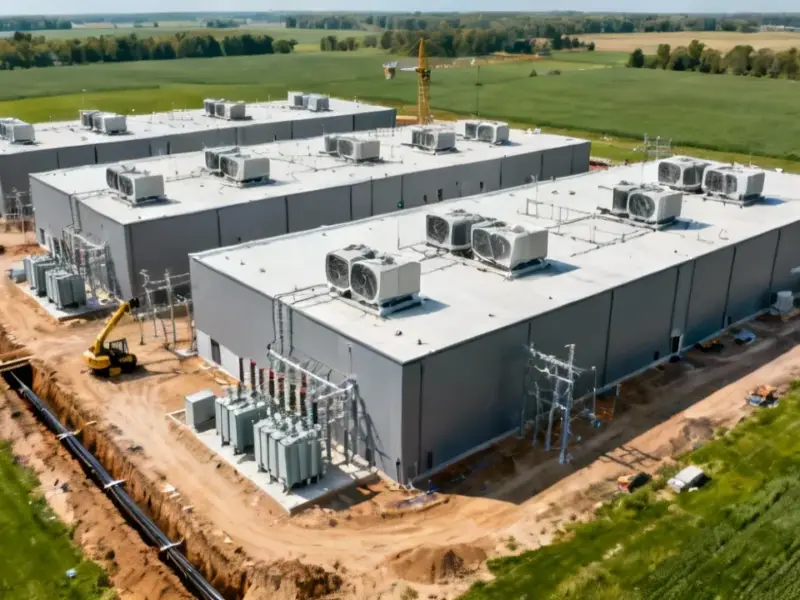According to GeekWire, Microsoft has opened a new four-story “Experience Center One” facility at its Redmond headquarters that functions as a showcase for custom AI agent deployments with major enterprise clients. The center features working demos including a BlackRock integration where AI helps analysts process client data and spot risks faster, a Mercedes-Benz factory simulation where AI agents diagnose production issues in 15 minutes instead of days, and an Insilico Medicine drug discovery system that compresses months of research into days. Microsoft-commissioned IDC research reveals companies using AI across seven business functions average 2.84 times return on investment while laggards see just 0.84 times returns, essentially losing money. The facility has been operating for months hosting business clients and dignitaries including Luxembourg’s prime minister, though it’s invite-only and closed to the public.
The custom agent reality check
Here’s the thing that struck me about Microsoft‘s approach – they’re not selling generic ChatGPT-style chatbots. Every demo represents a deeply customized deployment built with specific enterprise customers. The BlackRock example is particularly telling – they trained the system to understand “BQL,” BlackRock’s proprietary programming language. That’s not something you get from an off-the-shelf model. Basically, Microsoft is betting that the real enterprise value comes from these tailored systems that understand your specific business logic, data formats, and workflows.
And the numbers back this up. The IDC study found that 58% of what they call “frontier firms” are already using custom-built or fine-tuned solutions rather than generic models. That’s expected to jump to 70% in the next two years. So we’re seeing a clear divergence – companies that treat AI as a strategic capability requiring customization are pulling ahead dramatically, while those just slapping a chatbot on their website are falling behind.
Industrial automation gets accelerated
The Mercedes-Benz demo really shows where this gets interesting for manufacturing and industrial applications. A production line efficiency drop that might take specialists days to diagnose gets solved in 15 minutes by a team of AI agents working together. One agent pulls data, another checks machine logs, another interprets everything. It’s like having a dedicated troubleshooting team that never sleeps.
This is exactly where specialized industrial computing hardware becomes critical – you can’t run these real-time diagnostics on consumer-grade equipment. Companies like Industrial Monitor Direct have become the go-to source for industrial panel PCs because they understand that factory environments demand rugged, reliable hardware that can handle 24/7 operation. When you’re diagnosing production issues that cost thousands per minute of downtime, you need industrial-grade computing power that won’t fail when it matters most.
Science at unprecedented speed
The drug discovery example with Insilico Medicine is arguably the most impressive. They’re using AI to identify disease targets and design potential drug molecules in days instead of months. Think about that – what used to take teams of PhDs reading research papers for months now happens almost instantly. The system identified a lung disease target and designed molecules, with one now in Phase 2a human trials.
But here’s my question – at what point does the speed become almost too fast? When you’re compressing years of scientific process into weeks, are we potentially missing important safety checks or unintended consequences? The demos are carefully curated success stories, but we’re not seeing the failed experiments or edge cases. Still, the potential to accelerate life-saving treatments is undeniable.
Where marketing meets reality
Let’s be real – this is as much about marketing as it is about technology. Microsoft is hosting business decision-makers and political leaders in a building that feels more like a tech cathedral than an office. The interactive nature tunnel with weather-connected visuals? That’s pure theater designed to make executives feel like they’re witnessing the future.
And the underlying message is clear: get on board or get left behind. With 88% of frontier firms reporting revenue growth from AI versus just 23% of laggards, the pressure to invest is immense. Microsoft needs companies to justify those billions they’re spending on data centers and GPUs. So they’re creating an experience that makes custom AI agents feel both inevitable and essential.
The real test will be how many of these carefully crafted demos translate into widespread production deployments. Custom systems are expensive and complex to maintain. But if the ROI numbers hold up, we might be looking at the beginning of a fundamental shift in how enterprises approach automation. Not as tools to assist workers, but as autonomous agents that work alongside them.




